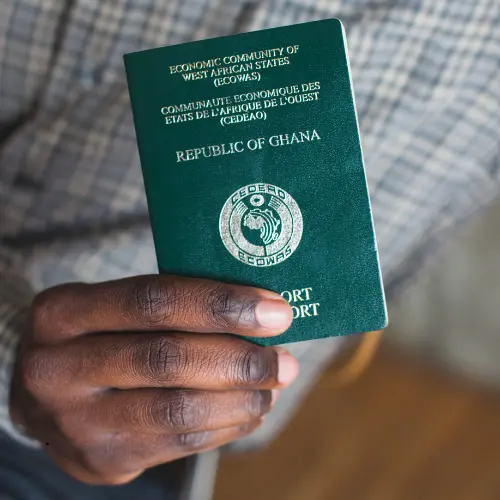Foreign nationals can acquire Ghanaian citizenship through various pathways as outlined in the Ghana Citizenship Act, 2000 (Act 591) and the 1992 Constitution. The process depends on factors such as residency, marriage and descent. Below is a detailed breakdown of the legal routes to citizenship.
1. Citizenship by Naturalization
A foreign national resident in Ghana may apply to become a Ghanaian citizen by naturalization. According to the Citizenship Act 2000 (Act 591), an individual becomes a citizen of Ghana by naturalization where such a person applies to the Minister of Interior and their application is subsequently approved by the President of Ghana. The applicant becomes a citizen after the certificate of naturalization has been issued and the oath of allegiance is sworn to.
Naturalization is the most common route to Ghanaian citizenship for foreign nationals without Ghanaian ancestry. To qualify, an applicant must meet the following requirements:
i. That the applicant has legally resided in Ghana for at least 5 years out of a 7-year period preceding the application;
ii. That the applicant has lived continuously in Ghana for at least 12 months immediately preceding the application;
iii. That the applicant is of good character with no criminal record;
iv. That the applicant is able to speak and understand an indigenous Ghanaian language;
v. That the applicant is a person who has made or is capable of making a substantial contribution to the progress or advancement in any area of national activity;
vi. That the applicant is a person who has been assimilated into the Ghanaian way of life or who can easily be so assimilated;
vii. The applicant must show the intention to reside in Ghana and provide proof of self-sufficiency.
2. Citizenship by Birth
Ghanaian law grants citizenship by birth based on the date and place of birth. For instance, where a person was born in Ghana before 6th March, 1957, (Independence Day of Ghana), that person is a citizen of Ghana. Furthermore, a person is a citizen by birth if they were born in Ghana and at least one parent or grandparent was also born in Ghana.
3. Citizenship by Foundling
A person is considered a citizen of Ghana by foundling if they are under 7 years old and were found in Ghana with unknown parents. Such children are presumed to be citizens by birth.
4. Citizenship by Registration & Marriage
Under Article 7(1) of the 1992 Constitution of Ghana and Section 10(2) of the Citizenship Act 2000 of Ghana, a spouse of a Ghanaian citizen may apply for citizenship. Even if the marriage is dissolved, the person retains citizenship unless it is formally renounced.
Foreign nationals married to Ghanaian citizens can acquire citizenship through registration. The requirements include being married to a Ghanaian citizen for at least 5 years, being resident in Ghana for at least 2 consecutive years prior to the application. Additionally, the person must demonstrate good character and be able to speak an indigenous Ghanaian language.
5. Citizenship for Persons of Ghanaian Descent
Foreign nationals with at least one Ghanaian parent or grandparent are qualified for Ghanaian citizenship. This right to citizenship recognizes ancestral ties to Ghana.
6. Citizenship by Adoption
An adopted child becomes a Ghanaian citizen if the adoptive parents are Ghanaian citizens and the child is under 16 years old at the time of adoption.
7. Dual Citizenship
Ghanaian laws allow dual citizenship, meaning a Ghanaian can hold citizenship in another country while retaining their Ghanaian citizenship. However, dual citizens are currently restricted from holding certain public offices, such as becoming a Member of Parliament, Speaker of Parliament and other positions involving national security or confidentiality.
As it stands, the Supreme Court of Ghana has justified these restrictions based on concerns about conflict of interest, national security, and state allegiance.
Conclusion
Ghana offers structured and accessible pathways to citizenship for foreign nationals, emphasizing residency, marriage, or ancestral ties. While the process can be lengthy, the legal framework is clear, and dual citizenship is permitted.
At August Law, our immigration/citizenship team specializes in assisting individuals, families, and businesses with:
– Visa applications and appeals.
– Citizenship acquisition.
– Defense in deportation and removal proceedings.
– Compliance with immigration laws and regulations.
Consult us today for tailored solutions to your immigration and citizenship challenges. Let us help you navigate the process with expertise and care.




